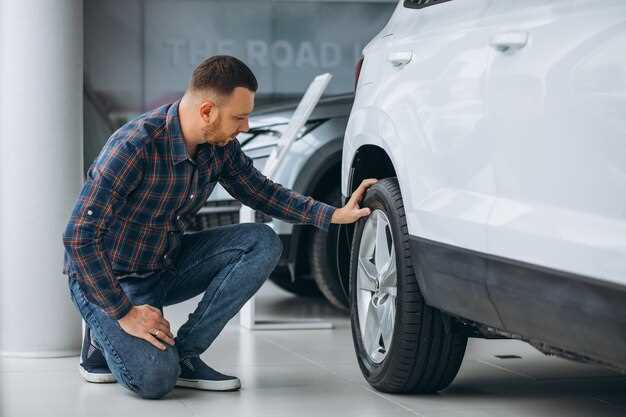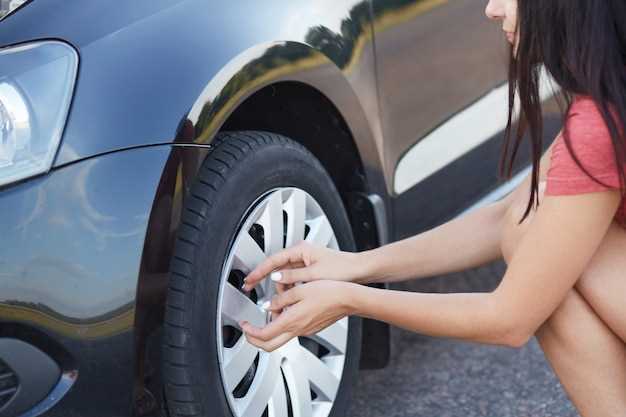
When preparing to sell your car, one of the critical aspects to consider is the overall condition of the vehicle, particularly the tires. Potential buyers often check the state of the tires as part of their evaluation, and worn or damaged tires can significantly affect the resale value. A set of quality tires can enhance the car’s appeal, leading to quicker sales and potentially higher offers.
Before making a decision about whether to replace tires, it’s essential to assess their condition closely. Check for signs of wear, uneven tread, or any visible damage. Tires that are nearing the end of their life may give buyers the impression that the car has been poorly maintained. On the other hand, investing in new tires could result in a better resale price, making it a worthwhile consideration.
In summary, while it may seem like an additional expense, replacing tires before selling your car might be a smart strategy. It not only boosts the vehicle’s appeal but also ensures that prospective buyers feel confident about their purchase. Ultimately, ensuring your tires are in good condition can contribute positively to the resale experience.
Assessing Tire Condition: Key Indicators to Consider
When preparing to sell your car, the condition of your tires can significantly impact its resale value. Prospective buyers often consider tire health as an essential aspect of overall vehicle maintenance. Here are key indicators to assess the condition of your tires before putting your car on the market.
First, examine the tread depth. The tread provides the necessary grip for traction, especially in adverse weather conditions. A simple way to check is by using the penny test: insert a penny into the tread groove with Lincoln’s head facing down. If you can see the top of Lincoln’s head, your tires likely need replacing. A tread depth of 2/32 inches or less is often considered unsafe.
Next, inspect for uneven wear patterns. This may indicate alignment or suspension issues. Uneven wear can deter potential buyers, as it suggests that the car may have been poorly maintained. Look for balding spots or excessive wear on one side of the tire compared to the other.
Additionally, look for any visible damage such as cuts, bulges, or cracks in the sidewalls. Such issues compromise tire integrity and can lead to blowouts or other dangerous situations. Buyers will be wary of tires that demonstrate visible deterioration, potentially reducing your car’s sale price.
Lastly, check the age of your tires. Even if the tread depth appears adequate, tires over six years old may not perform optimally. Manufacturers often provide a DOT number on the tire sidewall that indicates the week and year of manufacture. Tires older than ten years should be replaced, regardless of tread condition.
By carefully assessing these indicators, you can make informed decisions about whether to replace your tires before selling your car, ultimately maximizing its resale value.
Financial Implications: Cost of New Tires vs. Potential Sale Price

When considering whether to replace tires before selling your car, it’s crucial to evaluate the financial implications. New tires can be a significant investment, with costs often ranging from a few hundred to over a thousand dollars, depending on the type and brand. However, this upfront expense must be weighed against the potential increase in the vehicle’s resale value.
Firstly, a thorough check of your car’s current tires can help determine if replacement is necessary. If the tread depth is low or if there are visible damages, new tires may not only enhance safety but also attract buyers who prioritize reliability. Prospective buyers often perceive new tires as a sign of good maintenance and care, potentially justifying a higher sale price.
Additionally, consider the market. In certain situations, even if the cost of new tires equals the projected increase in sale price, the investment can lead to faster sales. Buyers may be willing to pay a premium for a vehicle that is road-ready, especially in markets where safety and performance are highly valued.
Ultimately, the decision hinges on the condition of your current tires. If they are in good shape, it may be more beneficial to sell as is. However, if they need replacing, investing in new tires could yield a better return on investment, enhancing both the appeal and value of your car during the resale process.
Impact on Resale Value: How Tires Influence Buyer Perception

When considering the resale value of your vehicle, tires play a crucial role in influencing buyer perception. A buyer’s first impression often begins with the condition of the tires. Worn or damaged tires can signal that the car may have been neglected, potentially leading to doubts about the overall maintenance of the vehicle.
Buyers tend to check the tires for tread depth, evenness of wear, and overall condition. Sufficient tread depth not only enhances safety but also reflects the care taken by the previous owner. If the tires show clear signs of wear or require replacement soon, potential buyers might underestimate the value of the car, viewing it as a burden that could incur additional costs shortly after the purchase.
Investing in new tires can positively influence resale value. It suggests to buyers that they won’t have to spend extra money on immediate upkeep, making the vehicle more appealing. Furthermore, in certain markets, premium tires can enhance the perception of luxury and performance, thereby increasing the car’s allure and price point.
In conclusion, the condition of tires significantly impacts a prospective buyer’s perception and can ultimately determine the resale value of your vehicle. Ensuring that the tires are in good shape can facilitate a smoother transaction and potentially yield a higher return on investment.





